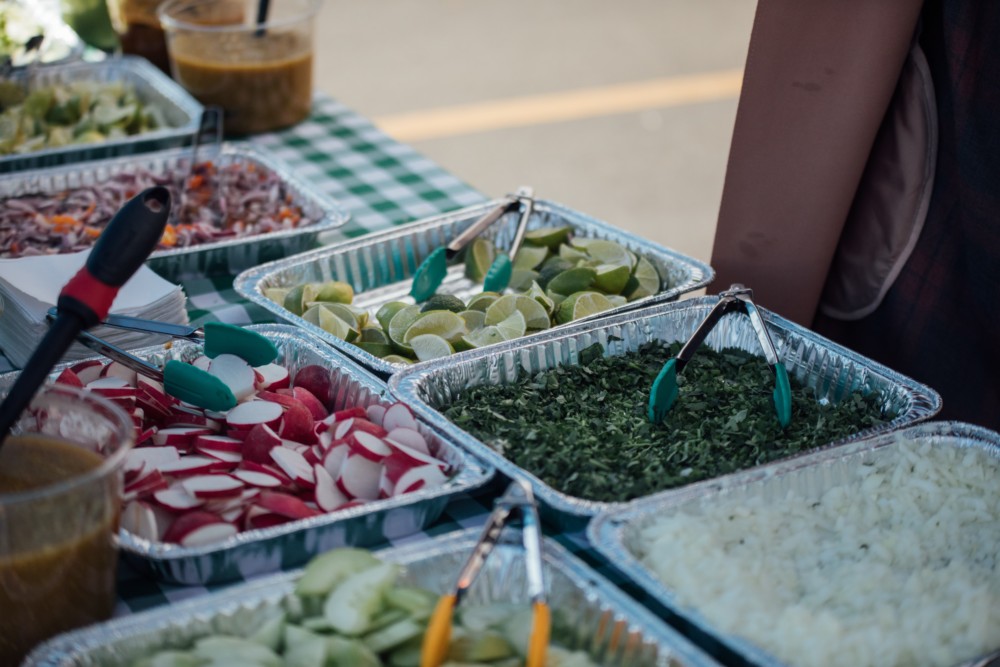
Have you ever catered a meal to a guest with food allergies before? These situations will be inevitable, so take our advice and prepare for the scenario now so that you can safely serve the food. In fact, African-Americans have a significantly higher chance of having an allergy to fish/shellfish, corn, soy, and wheat, while white individuals have a higher tree-nut allergy. Learn more about food allergies below and how you can accommodate every guest equally.
Common Food Allergies To Watch For
The following is a list of common food allergies you could encounter as a caterer.
- Eggs
- Nuts
- Milk
- Fish
- Soy
- Wheat
Reactions to each food depend on the person and the severity of the allergy. Some individuals may experience only itchy skin, hives, or a runny nose, while some reactions could become life-threatening. Ensure you receive a list from your client on what guests will need accommodations.
Cook Separate Meals
You may need to prepare an alternative meal for guests who can’t eat the main course due to an allergy. Have a menu available before the event that allows for alternative options so that no one is left out when mealtime comes around. Also, remember to practice food safety habits in the kitchen and keep ingredients from cross-contaminating when you’re cooking separate meals.
Use Different Dinnerware
To keep confusion to a minimum and encourage communication throughout kitchen staff, put special meals on dinnerware that differs from the main meal. This will allow employees to easily identify a plate with food restrictions. This extra precaution is worth trying because you never want to mix up ingredients or meals accidentally.
Have Alternative Ingredients on Hand
When a guest has a food allergy, you may need to make their meals with alternative ingredients on hand. For example, someone with celiac disease will require a gluten-free pasta substitute to eat the meal. Catering meals to these individuals doesn’t have to be difficult, as long as you have a supply of allergen-free ingredients and products.
Be mindful of people with allergies and have the right resources on hand to accommodate these guests at your catering event. Speak with your client before creating a meal plan to gather information on dietary restrictions. Lastly, train your staff to be more conscious of this type of scenario so that you can avoid a disaster at the event.

